





| Benton County Republicans’ Private Fundraising Event, “Bent-on Boots and Bling” with Trey Taylor |
| Friday, September 5, 2025 at 5:00 pm |
| Featuring Trey Taylor Music Private Event Friday, September 5, 2025 5:00-5:30 pm VIP Reception 5:30-8:00 pm Heavy Appetizers, Auction, Concert Red: $750 VIP Reception Front Row Table Sponsor White: $500 Table Sponsor Blue: $50 per person Limited Seating. Get Yours Now!!! Support Local Dress up: Bling, Cowboy, Patriotic Benton County Republican FUNDRAISER www.BentonGOP.org Get your tickets today at: https://www.bentongop.org/event-details/benton-county-republicans-fundraiser/form About Trey: Trey is the youngest African American Man in Country Music History. The Denver Post wrote "It's impossible to miss his enthusiasm. With a fondness for cowboy boots, gaudy colors and dazzling jewelry, Trey Taylor could stand toe to toe with any of the Pop, Country or even Rap contemporaries of his generation.“ |
| Trysting Tree Golf Club, 34028 NE Electric Rd., Corvallis |
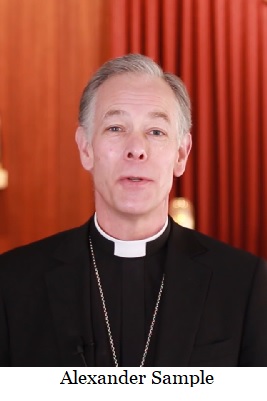
I am speaking out publicly to express my great disappointment and frustration at the Governor’s latest restrictions on faith communities in Oregon. I understand the need to address the spike in COVID-19 cases, but we know that spread of the virus is not happening at faith gatherings. Our churches have been carefully following the masking, distancing, and sanitizing protocols. They work. Why are we limited to 25 people in a church that can seat 1000 while certain businesses are allowed to operate on a percentage of capacity? I would like to know the Governor’s rationale for tighter restrictions on churches. It is not data driven. It does not make sense. Our neighbors to the north in Washington are facing greater spread and tighter restrictions, yet their Governor’s formula for restrictions on faith
communities is much more reasonable (25% occupancy or 200 maximum). It follows the science. A similar policy makes sense for Oregon.
The Catholic Church and other faith communities have bent over backwards to observe Governor Brown’s directives and implement strict protocols to keep people safe since the pandemic began. We operate in a controlled environment where we can keep everyone who enters our doors from having “close contact.†We are asking the Governor, following the two week “freeze,†to reconsider her gathering restrictions for faith communities. We ask her to remember that the Christmas holiday is a little over a month away, and it is a season when people of many faiths turn to their churches. We need a policy that matches our current situation, keeps people safe, and meets the spiritual needs of people of faith in Oregon. It is unfortunate that a person’s ability to worship does not seem to be considered an essential activity. I can assure you that the Catholic faithful under my pastoral care consider Sunday worship vital, especially when facing the challenges of the pandemic.
The Catholic community continues to pray for the Governor and her staff while she does the very challenging work of navigating the state of Oregon through this terrible pandemic.

| Post Date: 2020-11-19 16:39:06 | Last Update: 2020-11-19 16:56:03 |

"This data provides PPB with an opportunity to improve and seek out additional tools and resources," said Chief Chuck Lovell. "Stops data helps us realize over-representation in the criminal justice system still exists. We understand this creates fear and distrust within the community. It's important to continue to enhance the data collection process to give us a better understanding of the context of stops, searches and arrests. We will continue to incorporate these system changes, policy changes and training, including how to better capture consent searches."
The report indicates several key findings:| Post Date: 2020-11-19 16:15:34 | Last Update: 2020-11-19 17:00:55 |
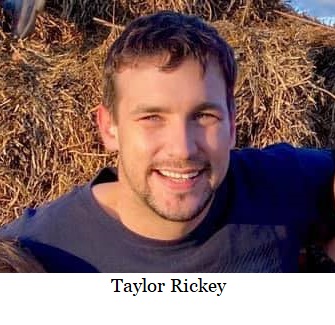

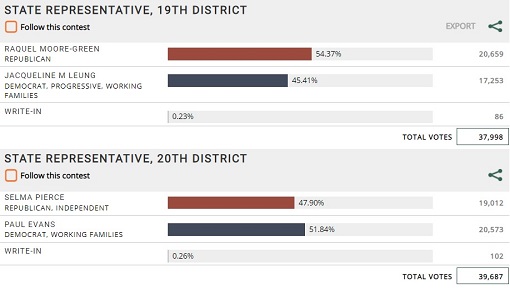 No one will ever be able to tell how those Libertarians voted, but if one makes the assumption that voters tend to not split their party votes, in a Senate District that contains exactly two House Districts, Republicans tallied 39,671 votes to 37,826 in those two races, winning by a combined 1,845 -- less than the Libertarian take.
No one will ever be able to tell how those Libertarians voted, but if one makes the assumption that voters tend to not split their party votes, in a Senate District that contains exactly two House Districts, Republicans tallied 39,671 votes to 37,826 in those two races, winning by a combined 1,845 -- less than the Libertarian take.
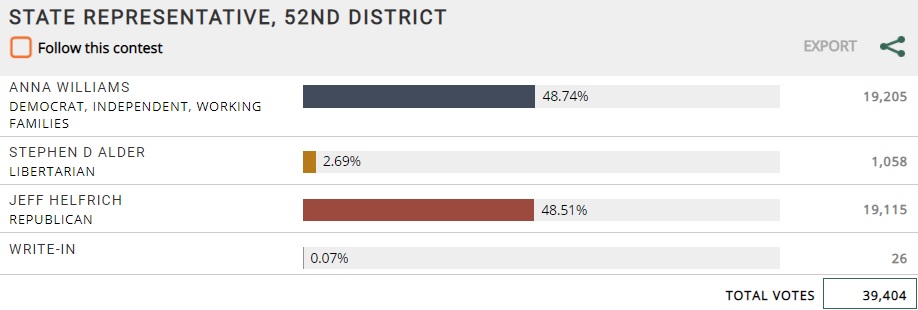
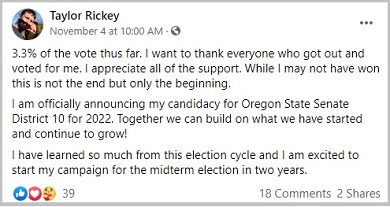 Asked if he thought he cost Jeff Helfrich the election, Stephen Alder, the Libertarian candidate from House District 52 said, "I cant speak for Mrs. Williams' nor Mr. Helfrich's voters' choice. What I can say is that by my running against the two of them did not cause either to lose votes, the people chose the candidate that they felt was best. It was in the realm of possibility that I could change [the outcome] however, my candidacy was for changing the legislature and keeping people accountable for what they do." He added, "Libertarians don't take votes. We present ourselves as a viable alternative to the same old 'lesser of two evils'. Voting should not be a 'Sofie's choice'. You vote as your civic duty and vote your conscience."
Asked if he thought he cost Jeff Helfrich the election, Stephen Alder, the Libertarian candidate from House District 52 said, "I cant speak for Mrs. Williams' nor Mr. Helfrich's voters' choice. What I can say is that by my running against the two of them did not cause either to lose votes, the people chose the candidate that they felt was best. It was in the realm of possibility that I could change [the outcome] however, my candidacy was for changing the legislature and keeping people accountable for what they do." He added, "Libertarians don't take votes. We present ourselves as a viable alternative to the same old 'lesser of two evils'. Voting should not be a 'Sofie's choice'. You vote as your civic duty and vote your conscience."
| Post Date: 2020-11-19 08:40:56 | Last Update: 2020-11-19 08:55:38 |
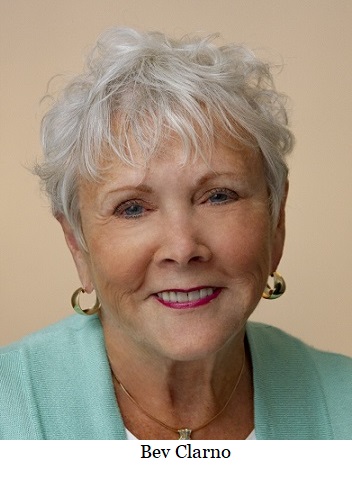
| Post Date: 2020-11-18 19:55:31 |
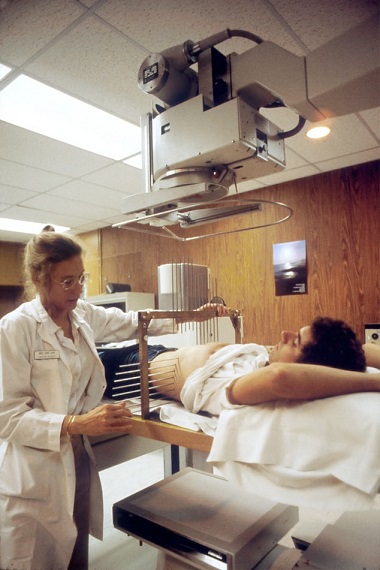
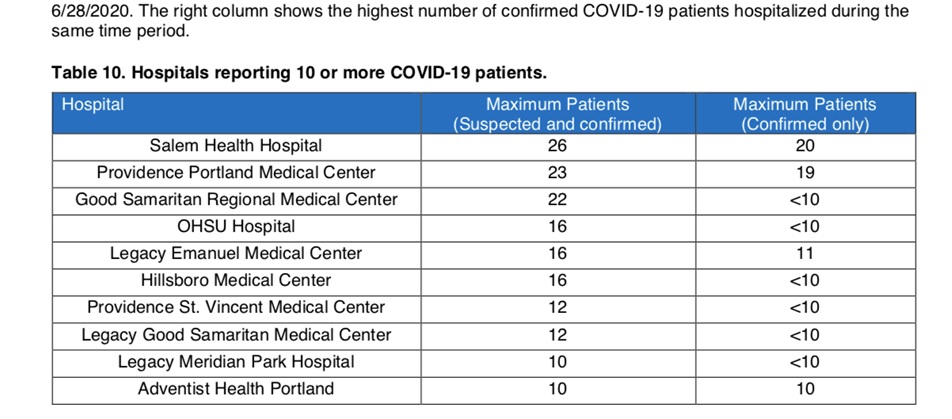 Between the Weekly Report published by OHA and this article on July 1, show there were more COVID hospitalizations reported months ago but the messaging then was that things were under control and survival rates had improved significantly.
Between the Weekly Report published by OHA and this article on July 1, show there were more COVID hospitalizations reported months ago but the messaging then was that things were under control and survival rates had improved significantly.
| Post Date: 2020-11-18 13:53:33 | Last Update: 2020-11-18 14:20:56 |
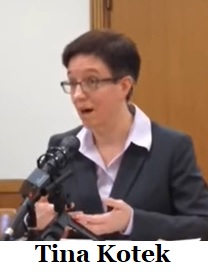
“I’m honored to have the supportof my caucus to continue serving Oregon and the chamber as House Speaker,†Kotek said. “Like every business and family in Oregon, the legislature has been moving from crisis to crisis since February. As we head into the 2021 session, we are facing a global pandemic, high unemployment, a billion-dollar budget hole, an expensive wildfire recovery, a severe housing shortage, and the everydayharmof systemic racism. All of these crises require urgent action and experienced leadership. I remain committed to continue working with every member to help all parts of the state to solve these immense challenges. Every legislator will need to bring all their compassion and empathy to the table. Together, we can build a better and more just Oregon."
Kotek, who was first elected to the Oregon Legislature in 2006, is the longest-serving House Speaker in Oregon history and became the first openly lesbian speaker of any state house in 2013. She will be officially nominated to serve her fifth term as House Speaker on Tuesday, January 19, 2021, the first day of the 81stOregon Legislative Assembly, when the full House of Representatives will elect the Speaker.| Post Date: 2020-11-18 10:42:30 | Last Update: 2020-11-19 08:24:54 |
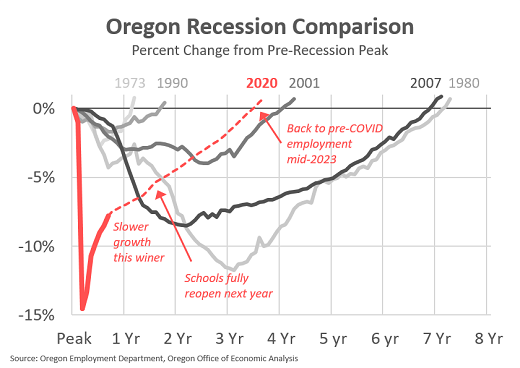
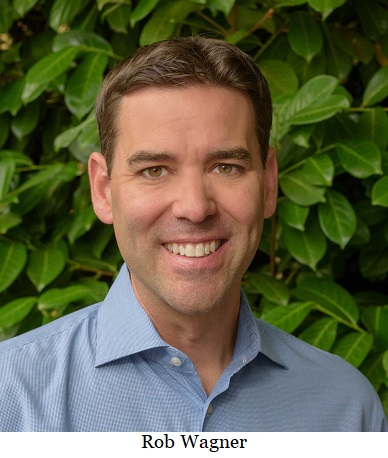 House Republican Leader Christine Drazan (R-Canby) added, “Today’s forecast shows that our state economy is stable, but this is not a reflection of reality for most Oregonians who have been impacted by these shutdowns. The most recent “freeze†will hurt Oregonians and business owners, and make an already tenuous recovery even harder for families. Now more than ever we must protect jobs, support business growth, manage our reserves and control spending to ensure a long-term recovery for all of Oregon.â€
House Republican Leader Christine Drazan (R-Canby) added, “Today’s forecast shows that our state economy is stable, but this is not a reflection of reality for most Oregonians who have been impacted by these shutdowns. The most recent “freeze†will hurt Oregonians and business owners, and make an already tenuous recovery even harder for families. Now more than ever we must protect jobs, support business growth, manage our reserves and control spending to ensure a long-term recovery for all of Oregon.â€
| Post Date: 2020-11-18 09:58:11 | Last Update: 2020-11-18 11:34:55 |

It is time to re-evaluate the metrics and the ever-changing goal posts related to slowing the spread of COVID-19 in our rural, semi-rural, eastern and frontier communities. We have shut down for months, we have met the metrics required, we have followed the goal posts as they’ve moved, we have adhered to the rules, we have slowed the spread—and yet, our counties, communities, small businesses, K-12 schools, childcare and colleges, health departments and more, sit in a stale and stagnant state without forward progress. We have done and continue to do all that is within our capacity to slow the spread of COVID-19, and now, some of our border counties are being directly affected by decisions and actions from outside our state over which we have no control.
This is not a sustainable position for our communities.
1.Restaurants and bars: Our hospitality industry, restaurants and bars must be able to stay open. The data shared by OHA does not show any indication that our restaurants and bars are the cause of increased cases. In addition, our hospitality industry is responsible for employing tens of thousands and Oregonians and keeping our already-fragile economy moving. Our restaurants and bars need to be able to extend their hours beyond the arbitrary closing time of 10:00pm and need to safely expand their indoor occupancy especially as we head into the holiday season and winter when indoor restaurants, lodging and tourism activity will grow. We are at risk for nearly 40% of our remaining businesses closing in the next six months if we do not allow for reasonable expansion of these services and industries.
2.Schools: Our schools need to be allowed to fully re-open for in-classroom learning, and our students need to be allowed to participate in extracurricular activities. All teachers, students, staff, and volunteers that want to return to in-person learning should be able to do so in a safe manner. All teachers, students, staff, and volunteers that desire to continue CDL should be able to do so. If it is safe for college athletes to return to sports, assuredly it is safe for high school students. Parents need to be able to return to work, and our students and teachers need the stability of the classroom.
3.State Agencies: We need to reopen our state agencies at all levels, including and specifically DMVs, across the state. We would argue, and assume you would agree, that our state agencies and state employees are essential. These agencies are funded with public dollars and our public needs full access to these essential services.
4.Religious institutions: Release our churches and places of worship. While outliers will exist as the exception, most churches and places of worship will be and have been more than scrupulous in protecting their congregations from harm from COVID-19. Give pastors, religious leaders and governing boards the latitude to exercise their best judgement for safety.
We have a simple ask. As the leaders chosen by Oregonians to represent their best interests and be their advocates, throughout and across our beautiful state, we would ask that the Governor and Governor’s office participate in these meetings and work with us, assess the proposals and plans we put forward, and consider the options we will be recommending for your consideration and approval. We look forward to hearing from you soon.
The letter has been signed by lawmakers representing overwhelmingly rural areas.
Senator Lynn Findley, Senate District 30
Senator Bill Hansell, Senate District 29
Senator Kim Thatcher, Senate District 13
Senator Fred Girod, Senate District 9
Senator Brian Boquist, Senate District 12
Senator Chuck Thomsen, Senate District 26
Rep. Mark Owens, House District 60
Rep. Greg Barretto, House District 58
Rep. Raquel Moore-Green, House District 19
Rep. Shelly Boshart-Davis, House District 15
Rep.Vikki Breese-Iverson, House District 55
Rep. Mike Nearman, House District 23
Rep. Bill Post, House District 25
Rep. Rick Lewis, House District 18
Rep. Carl Wilson, House District 3
Rep. Elect and Commissioner Lily Morgan, House District 3
Rep-Elect Bobby Levy, House District 58
Bill Harvey Baker, County Commissioner
Mark Bennett Baker, County Commissioner
Bruce Nichols, Baker County Commissioner
Jerry Brummer, Crook County Commissioner
Patti Adair, Deschutes County Commissioner
Tony DeBone, Deschutes County Commissioner
Jim Hamsher, Grant County Commissioner
Sam Palmer, Grant County Commissioner
Pete Runnels, Harney County Commissioner
Patty Dorroh, Harney County Commissioner
Kristen Shelman, Harney County Commissioner
Mae Huston, Jefferson County Commissioner
Donnie Boyd, Klamath County Commissioner
Derrick DeGroot, Klamath County Commissioner
Kelley Minty Morris, Klamath County Commissioner
Mark Albertson, Lake County Commissioner
Brad Winters, Lake County Commissioner
James Williams, Lake County Commissioner
Donald Hodge, Malheur County Commissioner
Larry Wilson, Malheur County Commissioner
Dan Joyce, Malheur County Commissioner
Melissa Lindsay, Morrow County Commissioner
Don Russell, Morrow County Commissioner
Jim Doherty, Morrow County Commissioner
Todd Nash, Wallowa County Commissioner
Craig Pope, Polk County Commissioner
Bill Elfering, Umatilla County Commissioner
George Murdock, Umatilla County Commissioner
John Shafer, Umatilla County Commissioner
Paul Anderes, Union County Commissioner
Matt Scarfo, Union County Commissioner
Donna Beverage, Union County Commissioner
Susan Roberts, Wallowa County Commissioner
Mary Starrett, Yamhill County Commissioner
| Post Date: 2020-11-18 08:51:36 | Last Update: 2020-11-18 13:09:01 |
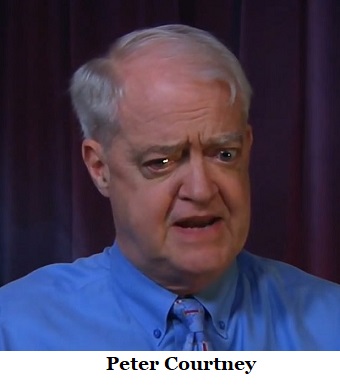
It is not uncommon during organizing efforts for employees to discuss the organizing effort, whether they support or oppose it, amongst themselves and to inquire of management perspectives. While every employee and certainly every member is entitled to their opinion on such an effort, it is important to recognize that employees have a right to discuss these matters. It is not appropriate, and contrary to state collective bargaining laws that protect union organizing efforts, for you in your role as appointing authority to attempt to influence or interfere in any way – in support or opposition. Any organizing effort is inherently an employee driven process and at this time, there is no action for the branch or you to take. As always, we encourage you to listen to the concerns, interests and needs of your staff, but in this circumstance, you should not engage in any discussion about the organizing activity.
State lawmakers are not regarded in law as "employers" of their staff. They are regarded as "appointing authority." Oregon Law does not mention "appointing authority." It's not clear whether any lawmaker, as "appointing authority" can "attempt to influence" the decision of their staff or the staff of other lawmakers to join or not join a union. It is not clear if such a memo is a restriction of the free speech and association rights of lawmakers.
243.670 Prohibition of actions by public employer to assist, promote or deter union organizing; rules.
(1) As used in this section:
(a) “Assist, promote or deter union organizing†means any attempt by a public employer to influence the decision of any or all of its employees or the employees of its subcontractors regarding:
(A) Whether to support or oppose a labor organization that represents or seeks to represent those employees; or
(B) Whether to become a member of any labor organization.
243.672 Unfair labor practices; complaints; filing fees.
(1) It is an unfair labor practice for a public employer or its designated representative to do any of the following:
(a) Interfere with, restrain or coerce employees in or because of the exercise of rights guaranteed in ORS 243.662.
(b) Dominate, interfere with or assist in the formation, existence or administration of any employee organization.
(c) Discriminate in regard to hiring, tenure or any terms or condition of employment for the purpose of encouraging or discouraging membership in an employee organization. Nothing in this section is intended to prohibit the entering into of a fair-share agreement between a public employer and the exclusive bargaining representative of its employees. If a “fair-share†agreement has been agreed to by the public employer and exclusive representative, nothing prohibits the deduction of the payment-in-lieu-of-dues from the salaries or wages of the employees.
(d) Discharge or otherwise discriminate against an employee because the employee has signed or filed an affidavit, petition or complaint or has given information or testimony under ORS 243.650 to 243.806.
(e) Refuse to bargain collectively in good faith with the exclusive representative.
(f) Refuse or fail to comply with any provision of ORS 243.650 to 243.806.
(g) Violate the provisions of any written contract with respect to employment relations including an agreement to arbitrate or to accept the terms of an arbitration award, where previously the parties have agreed to accept arbitration awards as final and binding upon them.
(h) Refuse to reduce an agreement, reached as a result of collective bargaining, to writing and sign the resulting contract.
(i) Violate ORS 243.670 (2).
(j) Attempt to influence an employee to resign from or decline to obtain membership in a labor organization.
(k) Encourage an employee to revoke an authorization for the deductions described under ORS 243.806.
(2) Subject to the limitations set forth in this subsection, it is an unfair labor practice for a public employee or for a labor organization or its designated representative to do any of the following:
(a) Interfere with, restrain or coerce any employee in or because of the exercise of any right guaranteed under ORS 243.650 to 243.806.
(b) Refuse to bargain collectively in good faith with the public employer if the labor organization is an exclusive representative.
(c) Refuse or fail to comply with any provision of ORS 243.650 to 243.806.
(d) Violate the provisions of any written contract with respect to employment relations, including an agreement to arbitrate or to accept the terms of an arbitration award, where previously the parties have agreed to accept arbitration awards as final and binding upon them.
(e) Refuse to reduce an agreement, reached as a result of collective bargaining, to writing and sign the resulting contract.
| Post Date: 2020-11-18 07:58:50 | Last Update: 2020-11-18 08:51:36 |

We recognize the threat that COVID-19 poses to our community and support data driven decisions to limit the spread of this disease, but we do not support the mandate to close gyms, churches, and restaurants as it is not supported by historical data and will only address a small fraction of Oregon’s COVID cases at the cost of thousands of jobs and hundreds of businesses.
Combined, cases that can be traced back to churches, restaurants and gyms make up less than 1% of all the recorded COVID cases in Oregon. Quite simply, there is no actual evidence that restaurants, gyms or churches are driving COVID in our community. In fact, because of the adherence to mask wearing and social distancing, these establishments have been some of the safest in the state.
The closure of these establishments ensures more jobs are lost and Oregonians are left only to rely on a broken unemployment system. Our neighbors and friends won’t be able to pay their mortgages, pay their rent, or buy Christmas presents for their children because of this decision. This is wrong.
Furthermore, we are concerned with the violation of our privacy as the state police and local law enforcement agencies are being ordered to investigate and criminally charge Oregonians based on the number of people they invite into their homes. Legality questions aside, with depression and anxiety levels at an all-time high, creating a new crime to visit your family only hinders those struggling with their mental health.
Data shows us that COVID has been spreading at private social gatherings, and we call on our fellow citizens to be careful and social distance when gathering over the holidays, but we cannot and will not support any attempt by any police agency to violate the sacred space of any Oregonian’s home.
Bill Post – State Representative, House District 25
Colm Willis, Marion County Commissioner
Rick Lewis – State Representative, House District 18
David Brock Smith – State Representative, House District 1
Raquel Moore-Green – State Representative, House District 19
Mark Owens – State Representative, House District 60
Mike Nearman – State Representative, House District 23
Jim Yon – Linn County Sheriff
Tim Knopp – State Senator, Senate District 27
Jack Zika – State Representative, House District 53
Cathy Clark, Mayor of Keizer
Craig Pope, Polk County Commissioner
Danielle Bethell, Marion County Commissioner Elect
Lyle Mordhorst, Polk County Commissioner
| Post Date: 2020-11-17 19:04:17 | Last Update: 2020-11-18 09:29:45 |
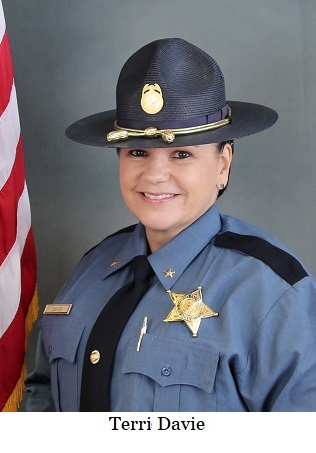
Oregonians have a strong tradition of unifying to protect the most vulnerable members of our communities. As your fellow community members, please join us in adhering to the Governor’s Executive Order during the two-week Coronavirus freeze. As your Oregon Law Enforcement professionals, our primary objective throughout the Coronavirus pandemic has been to take an education first approach and to seek voluntary compliance with each Executive Order. We recognize the inconvenience the pandemic and subsequent restrictions have caused all of us. We also know that the risk to our most vulnerable populations is extremely high at this time and we urge everyone to follow these restrictions in order to protect them. After all, we are all in this together.
With the issuance of the latest Executive Order, Oregon Law enforcement will continue to follow an education first approach. Oregon Law Enforcement will only take enforcement action (criminal citations) as a last resort. As with most enforcement decision making, discretion will be used if/when any Executive Order enforcement action is taken. Oregon Law Enforcement recognizes that we cannot arrest or enforce our way out of the pandemic. We can however work together in following these restrictions to make our communities a safer and healthy place.
We include the following recommendations when it comes to reporting Executive Order violations.
Business/workplace violations-Please report these to Oregon OSHA.
Restaurant/Bars-Please report these violations to OSHA or OLCC.
Oregon Law Enforcement is faced with many challenges one of which is typically receiving more police calls for service than available resources to respond. Because of this, we ask the public to follow the above-mentioned recommendations for reporting alleged violations of the Executive Order.
| Post Date: 2020-11-17 18:16:05 | Last Update: 2020-11-17 18:48:56 |

In terms of individuals, I am not asking you. I am telling you to stop your social gatherings, your informal social gatherings, and your house parties and to limit your social interactions to six and under -- not more than one household -- and I'm asking that immeadiately. I will take stronger legal action as appropriate. I've already directed the superintendent of state police to begin to work with local law enforcement to legally enforce the informal social gathering orders.
All this, despite the fact that many people have pointed out that some of her policies lack scientific foundation. All her policies lack transparency, as she is refusing to honor any public records requests made of her COVID council.| Post Date: 2020-11-17 17:23:31 | Last Update: 2020-11-17 19:04:17 |